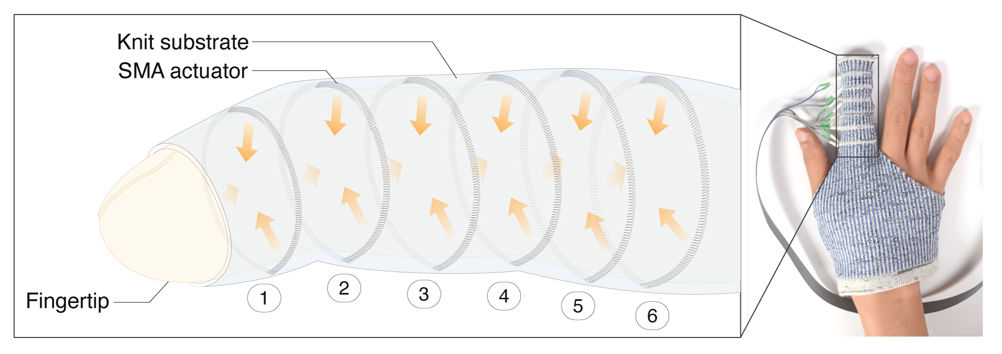Hand edema – swelling caused by excess fluid accumulation, from injury or disease – is commonly treated through manual edema massage (MEM) by a trained therapist. However, access to care and cost can make the procedure prohibitive.
Dr. Cindy (Hsin-Liu) Kao, assistant professor of human centred design and director of the Hybrid Body Lab at Cornell, led a team working with physicians and therapists to develop the KnitDema device. The team believes it could provide an improved treatment that can be used in the comfort of one’s own home.

According to researchers, KnitDema can gently massage the swollen area through sequential compression by small robotic actuators.
Kao said that they chose to focus on hand edema, particularly swelling of the fingers, “because it’s a condition that affects a lot of people and can have significant impact to activities of daily living, since finger mobility is indispensable in our day-to-day lives.”
The lab first tested KnitDema on a simulated finger (a saturated sponge encapsulated in silicone), then tried it on patients at Cayuga Medical Center. Researchers found that participants generally rated the device as comfortable to wear, quiet and offering more evenly dispersed compression around the swollen area as compared to MEM treatment.
MORE IN WEARABLE TECHNOLOGY
Kao sees KnitDema, and potential other devices using this technology, as a personalised rehabilitation device: a term coined by the team as something that could be prescribed to an outpatient, as would a medication.
“They would go to their rehab doctor and their occupational or physical therapist once, and at that session they would be able to configure the right amount of compression for daily use, then adjust as necessary,” Kao said, describing how someone could take the treatment home rather than scheduling ‘hard-to-get’ visits with a MEM therapist.
Dr. Joan Stilling, assistant professor of clinical rehabilitation medicine at Weill Cornell Medicine, added that KnitDem allows for use any time that is convenient for the patient, often when symptoms are worse for the individual.

“In addition, each device is personalised for each person through the digital machine knitting, allowing for a customised fit, which is not readily available through standard treatment options on the market,” Stilling said.
Researchers will present the study at the ACM CHI ’23 Conference on Human Factors in Computing Systems, in Hamburg, Germany.











Breaking the 15MW Barrier with Next-Gen Wind Turbines
Hi Martin, a wind turbine blade functions very much like an airplane wing in a climb. Obviously in one case the air is moving and the other the air is...